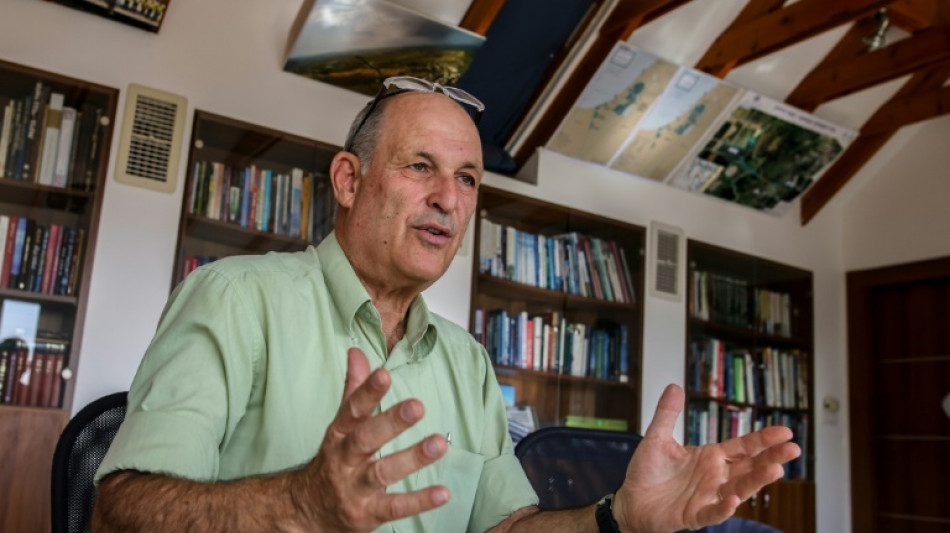
-
 Diallo stars as Ivory Coast set up Egypt showdown in AFCON
Diallo stars as Ivory Coast set up Egypt showdown in AFCON
-
Teen killed in anti-conscription protest in Jerusalem
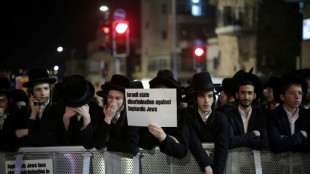
-
 Diallo stars as Ivory Coast set up Egyptsh owdown in AFCON
Diallo stars as Ivory Coast set up Egyptsh owdown in AFCON
-
Black Caps go spin heavy for T20 World Cup campaign
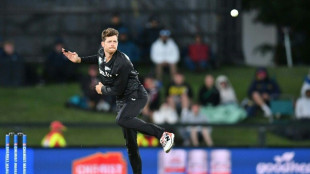
-
 Brazil oil drilling near Amazon halted over 'fluid leak'
Brazil oil drilling near Amazon halted over 'fluid leak'
-
Western allies agree Ukraine guarantees after Paris 'progress'
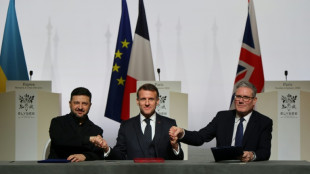
-
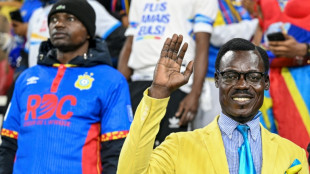 DR Congo's human statue becomes AFCON's most famous fan
DR Congo's human statue becomes AFCON's most famous fan
-
Boulbina extra-time stunner takes Algeria through to AFCON quarter-finals

-
 Doncic, Giannis lead NBA All-Star voting
Doncic, Giannis lead NBA All-Star voting
-
NASCAR commissioner Phelps steps down

-
 Domen Prevc secures Four Hills ski jump title to emulate brother
Domen Prevc secures Four Hills ski jump title to emulate brother
-
Fletcher says Man Utd coaching job was not in 'wildest dreams'

-
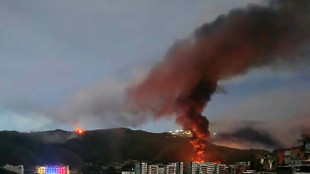 US forces killed 55 Venezuelan, Cuban military personnel in Maduro raid: tolls
US forces killed 55 Venezuelan, Cuban military personnel in Maduro raid: tolls
-
Maduro lawyer previously defended WikiLeaks' Julian Assange
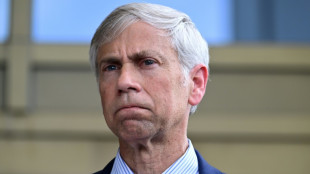
-
 O'Neill not sure he has 'energy' for long Celtic stay
O'Neill not sure he has 'energy' for long Celtic stay
-
Como sweep past Pisa to go fourth in Serie A

-
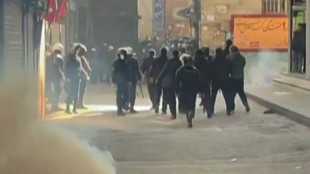 Iran security forces use tear gas in Tehran bazaar as toll rises
Iran security forces use tear gas in Tehran bazaar as toll rises
-
Man Utd speculation 'wasted time', says Palace boss Glasner

-
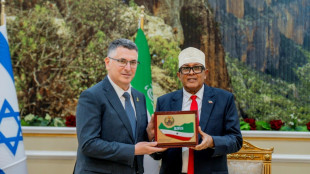 Somalia calls Israeli FM visit to Somaliland an 'incursion'
Somalia calls Israeli FM visit to Somaliland an 'incursion'
-
New Venezuelan leader walks tightrope with US, Maduro loyalists
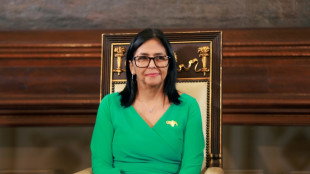
-
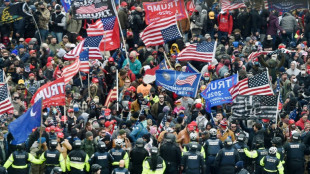 US Capitol riot anniversary exposes a country still divided
US Capitol riot anniversary exposes a country still divided
-
Six dead in weather accidents as cold snap grips Europe

-
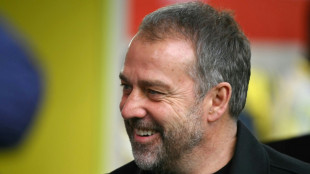 Repeating Super Cup success will give Barca 'energy': Flick
Repeating Super Cup success will give Barca 'energy': Flick
-
Dias, Gvardiol sidelined as Man City face defensive crisis

-
 Newcastle's Howe rules himself out of Man Utd job
Newcastle's Howe rules himself out of Man Utd job
-
Five dead in weather accidents as cold snap grips Europe

-
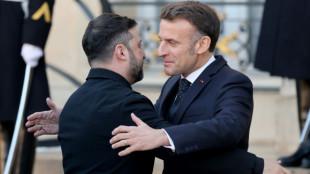 US would lead Ukraine ceasefire monitoring, back multinational force: draft statement
US would lead Ukraine ceasefire monitoring, back multinational force: draft statement
-
UK electric car sales hit record high in 2025: industry
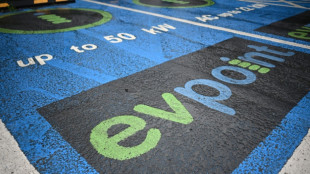
-
 Hungarian filmmaker Bela Tarr dies aged 70
Hungarian filmmaker Bela Tarr dies aged 70
-
Canadian Gee joins Lidl-Trek, resolves dispute with ex-team
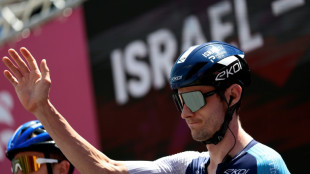
-
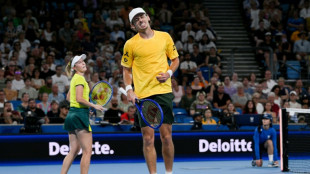 'Demon' drags hosts Australia into United Cup quarters
'Demon' drags hosts Australia into United Cup quarters
-
EV sales rebound in Germany as Chinese brands make inroads
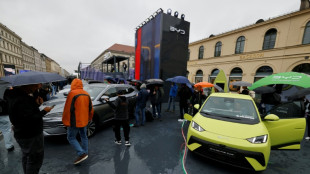
-
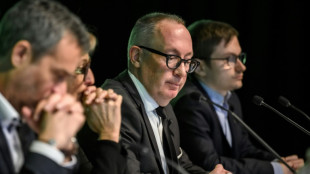 Swiss officials admit inspections failure at inferno bar
Swiss officials admit inspections failure at inferno bar
-
Taylor's endorsement prompts Swift sell-out for Sancerre wine
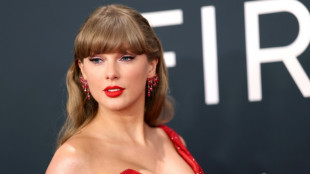
-
 Chelsea appoint inexperienced Rosenior as new boss
Chelsea appoint inexperienced Rosenior as new boss
-
IOC confident of Winter Olympics preparation despite delays
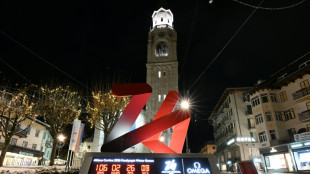
-
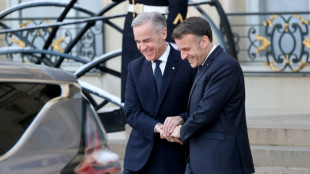 Ukraine's European, US allies meet in Paris on security guarantees
Ukraine's European, US allies meet in Paris on security guarantees
-
Oil prices gain, as equities extend record run higher
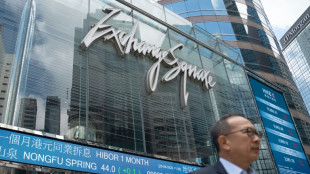
-
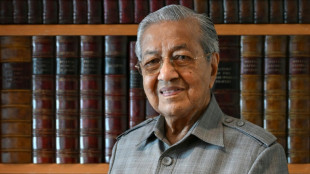 Malaysia's ex-PM Mahathir hospitalised with hip fracture after fall at home
Malaysia's ex-PM Mahathir hospitalised with hip fracture after fall at home
-
'Sad' Sabalenka says Battle of the Sexes 'brought eyes on tennis'

-
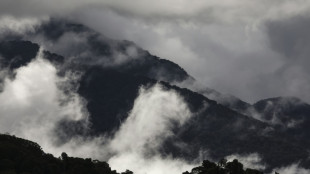 Climate-driven tree deaths speeding up in Australia: study
Climate-driven tree deaths speeding up in Australia: study
-
Unheralded Rosenior has 'agreed verbally' to become Chelsea manager
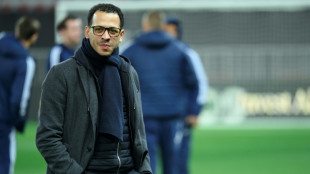
-
 Last 'holy door' at St Peter's closes to end Catholic jubilee year
Last 'holy door' at St Peter's closes to end Catholic jubilee year
-
US Justice Dept says millions of Epstein files still not released
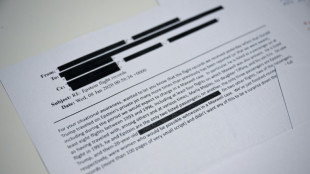
-
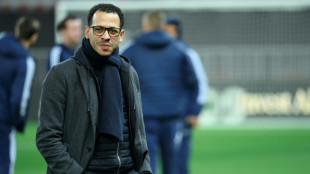 Rosenior says has 'agreed verbally' to become Chelsea manager
Rosenior says has 'agreed verbally' to become Chelsea manager
-
Kyrgios admits glory days behind him after losing on comeback
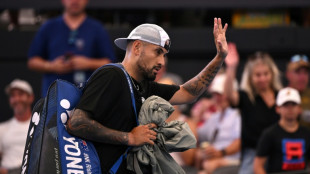
-
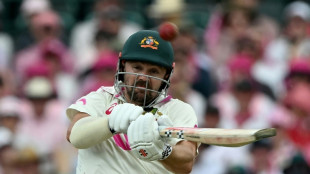 Australia's Head set to remain opener after sensational Ashes
Australia's Head set to remain opener after sensational Ashes
-
'Battle of the Sexes' rivals have mixed fortunes in Brisbane

-
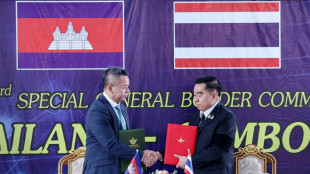 Thailand says Cambodia violated truce with cross-border 'accident'
Thailand says Cambodia violated truce with cross-border 'accident'
-
Nigeria's 'Kannywood' tiptoes between censor boards and modernity
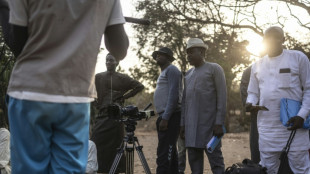

Israeli firm develops body cams with facial recognition
Twenty years after he planned the controversial barrier between Israel and Palestinians, Dany Tirza is developing a security tool that requires no cement: body cameras with facial recognition technology.
Tirza, a former Israeli army colonel, says his company Yozmot Ltd aims to produce a body-worn camera enabling police to scan crowds and detect suspects in real time, even if their faces are obscured.
Facial recognition in law enforcement has sparked global criticism, with US tech giants backing away from providing the technology to police, citing privacy risks.
Proponents including Tirza, however, tout its ability to track down criminals or missing persons.
"The policeman will know who he is facing," he said.
- 'It's easy' -
Tirza, 63, spoke to AFP from his home in Kfar Adumim, a Jewish settlement in the occupied West Bank.
He said he partnered with Tel Aviv-based Corsight AI to develop a body-worn police camera that could instantly identify people in a crowd, even if they wear masks, make-up or camouflage, and could match them to photographs dating back decades.
Corsight CEO Rob Watts did not confirm the collaboration but said his company was working with some 230 "integrators" worldwide who incorporated facial recognition software into cameras.
The technology allows clients to build databases, whether of company employees allowed into a building, ticket holders permitted into a stadium, or suspects wanted by the police, Watts said.
He said Australian and British police were already piloting the technology.
The facial recognition industry was worth about $3.7 billion in 2020, according to market research firm Mordor Intelligence, which projected growth to $11.6 billion by 2026.
Facebook, Microsoft, Amazon and IBM have all declared temporary or permanent freezes on selling facial recognition programmes to law enforcement.
France last month ordered the US-based Clearview AI to delete data on its citizens, saying the company violated privacy when it built a facial recognition database using images "scraped" from the internet.
Watts called Clearview's actions "abhorrent" and said Corsight AI did not sell to China, Russia or Myanmar because of "human rights and ethics".
"What we want to do is promote facial recognition as a force for good," he said.
He said Corsight had hired Tony Porter, the United Kingdom's former surveillance camera commissioner, as chief privacy officer, and that the software would blur or delete faces deemed not of interest within seconds.
Corsight AI was valued at about $55 million in a recent funding round, Watts said, estimating this would grow to $250 million by year's end and noting the technology's potential.
"Why do I need a credit card? I don't, I've got a face," he said. "The consumer will very, very quickly and readily adopt facial recognition because it's easy."
- Controversial history -
Surveillance technology developed in Israel has a chequered history.
The NSO Group, founded by Israeli military intelligence veterans, makes the Pegasus software that can spy on mobile phones.
US authorities blacklisted NSO in November, and Facebook and Apple have sued the company after the spyware was discovered on devices belonging to dissidents and journalists.
NSO says Pegasus meets the Israeli defence ministry's export rules.
Israeli facial recognition software, too, has encountered criticism.
In November, former Israeli soldiers revealed they had photographed thousands of Palestinians to build a database for a sweeping facial recognition surveillance programme in the West Bank city of Hebron.
In 2020, Microsoft divested from Israeli facial recognition firm AnyVision, now renamed Oosto, over the company's alleged involvement in surveilling Palestinians.
Oosto works with law enforcement agencies and private companies worldwide, and its software is used at checkpoints where Palestinian labourers cross into Israel.
Corsight CEO Watts said his company has "a number of contracts in Israel -- governmental contracts and agencies", but declined to elaborate, citing non-disclosure agreements.
- 'Control' -
Palestinian digital rights activist Nadim Nashif said the use of facial recognition technology entrenched Israel's "control" over Palestinians and added to a "domination" of physical spaces.
But Tirza praised its use at checkpoints, saying the main aim was to reduce "friction" between soldiers and residents.
Tirza was a colonel in the Israeli military in 2002 when he was tasked with designing a barrier in response to attacks during the second Palestinian intifada, or uprising.
Part towering concrete slabs, part fence, it now snakes for more than 500 kilometres (310 miles) along the Israel-West Bank border.
Palestinians say the barrier's construction grabbed nearly 10 percent of the West Bank, and the International Court of Justice ruled it illegal.
But Tirza said it also reshaped the conflict.
Until it was built, "a lot of people thought you cannot separate" Israelis and Palestinians, he said.
Tirza said he expected to have the body camera finished within a year, and hopes to market it to US and Mexican law enforcement -- though he acknowledged some reluctance.
"They were very interested, but everyone says we have to check the laws" to see whether it goes too far, he said.
"But I believe it is not too far."
L.Harper--AMWN